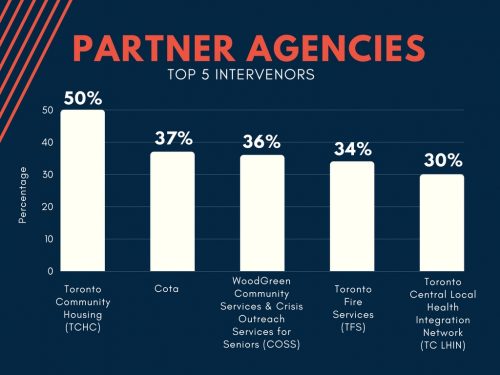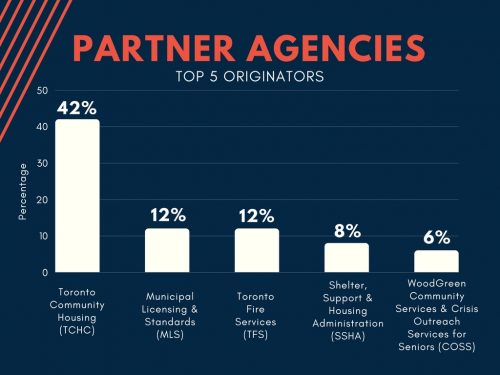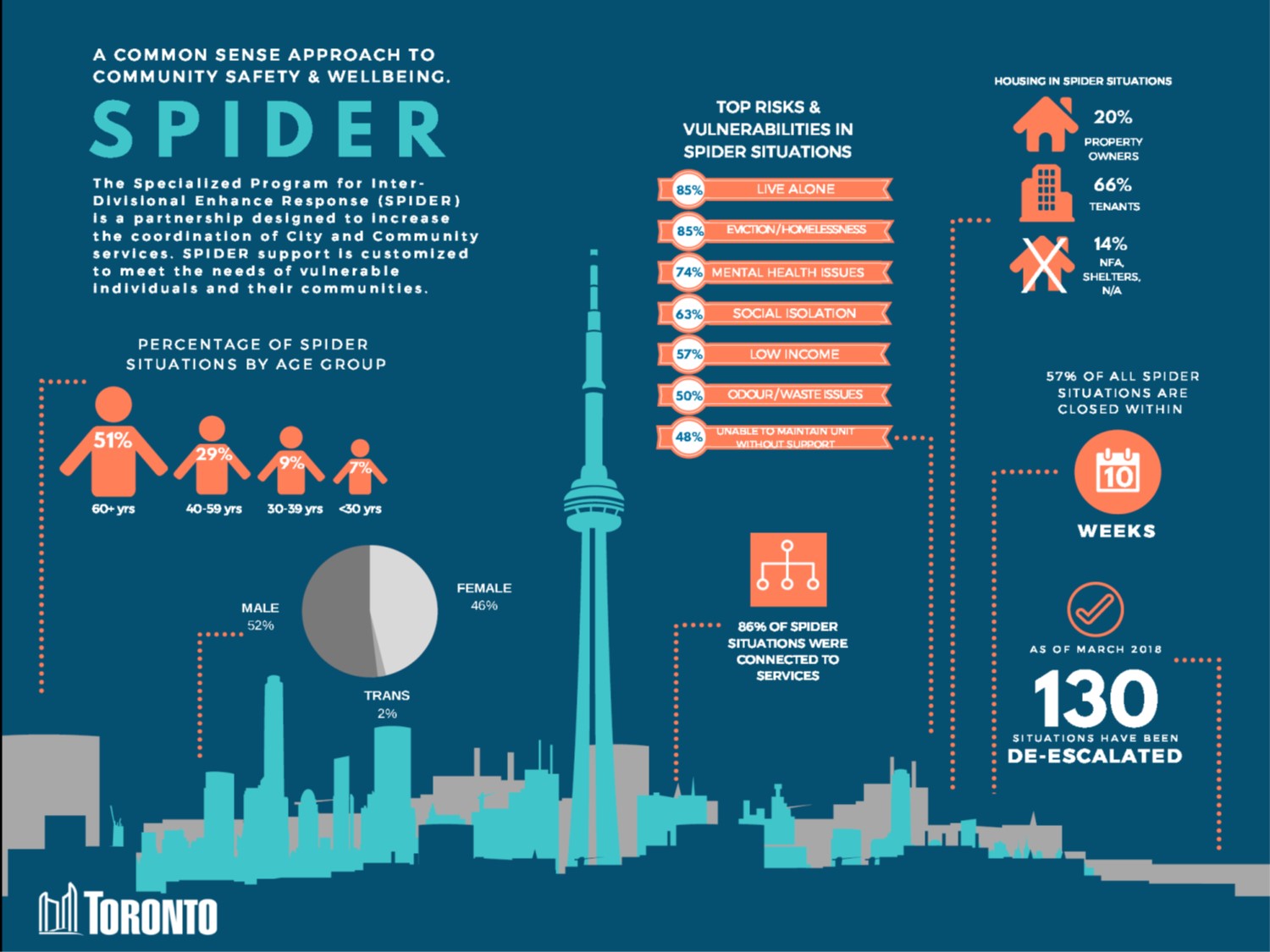
SPIDER’s mandate is to reduce the recurrence of complex health and safety risks, and ensure safe integration and inclusion of vulnerable Torontonians in their neighbourhoods and communities by:
The City of Toronto serves all residents, including those who may be subject to increased vulnerability related to aging, chronic health challenges, diminished capacity, mental health issues, social isolation, and other factors. This commitment requires innovation to deliver alternative or even higher levels of coordinated services.
SPIDER delivers customized responses for the purpose of mitigating elevated health and safety risks that affect people, property and neighbourhoods.
It strengthens the effectiveness of City services in resolving complex situations that could not be resolved by City divisions working alone or in limited coordination with each other.
SPIDER is involved in situations involving the chronic hoarding of animals, possessions and refuse; multiple property standard and fire code violations; bed bug and other pest infestations.
Most SPIDER situations are first brought to the attention of City services by distressed neighbours and community members ─ sometimes through their councillor, but most times through 3-1-1 requests.
Various City divisions and agencies are first responders to complex property and community standards issues, some of which arise as a result of a person experiencing vulnerability.
Staff from the division(s) who are first to respond will take the immediate appropriate actions to remedy the circumstance at the time but if issues are known to be chronic or of elevated risk, the case will be discussed at the SPIDER Situation Table to determine the best course of action to provide resolution.
SPIDER is not designed to supersede normal City services. It is reserved for rare and complex situations.
The City of Toronto defines vulnerability as a gap between the challenges a person faces and the resources they can access when facing those challenges.
Vulnerability must be assessed in context – a person’s vulnerability or resilience will depend on their circumstances, environment and resources in the broadest sense.
This definition of vulnerability emphasizes service and resource gaps ─ not characteristics of the person ─ as the core driver of vulnerability and affirms the role of the service provider to make extra efforts to reduce vulnerability by closing these gaps.
You play an important role in ensuring the health and well-being of your family, friends and neighbours.
If you notice that there is an unsafe situation developing that may bring harm to a specific individual or the community at large (including property), do not hesitate to call 3-1-1.
3-1-1 will know how to direct your call so that issues of greatest risk will be investigated first (e.g., fire code violations), and if necessary, will trigger response from other relevant divisions and/or SPIDER.
If you have an ongoing concern in your community that you feel has not been addressed and/or received the proper level of response, please contact: SPIDER@toronto.ca
SPIDER is a collaborative risk-driven model consisting of multiple City Divisions and Community Partners


